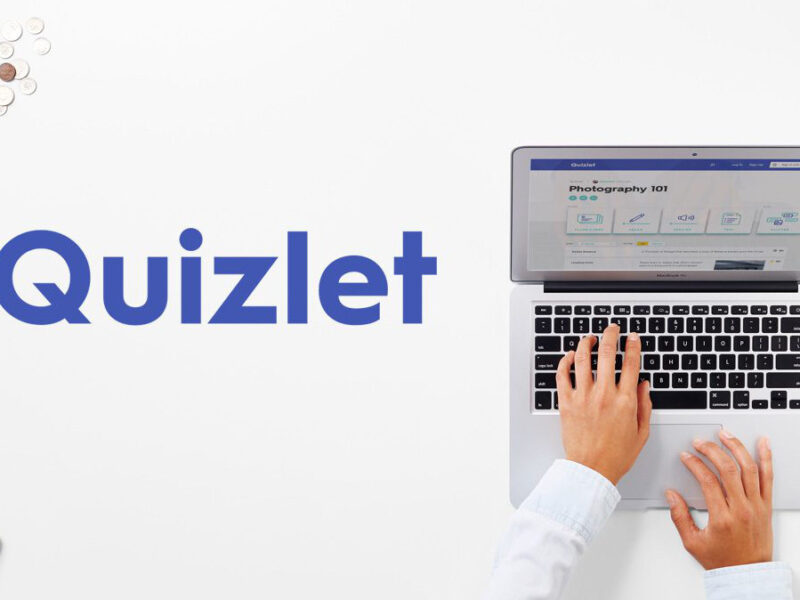Financial literacy is an essential skill in today’s world, but sadly, it is not given the attention it deserves in traditional education systems.
Many young adults and even some seasoned professionals struggle with managing their finances, leading to stress and financial instability.
However, there’s a ray of hope for those looking to improve their financial literacy in an engaging and interactive way – the Personal Finance Quizlet!
What is the Personal Finance Quizlet?
The Personal Finance Quizlet is an innovative and interactive learning platform designed to teach individuals about personal finance concepts in an enjoyable and gamified manner.
It allows users to enhance their financial knowledge while having fun and testing their understanding through quizzes, flashcards, and interactive games.
Why is Financial Literacy Important?
Before we delve into the features and benefits of the Personal Finance Quizlet, let’s briefly touch on why financial literacy is crucial. People with financial literacy are more equipped to handle their money, investments, and long-term financial objectives.
It helps them avoid debt traps, build a strong credit history, and plan for a secure future. With financial literacy, individuals can make better choices, save more effectively, and achieve financial independence.
Features of the Personal Finance Quizlet:
- Comprehensive Content: Budgeting, saving, investing, retirement planning, comprehending credit ratings, managing debts, and many other topics are covered in the Personal Finance Quizlet. Whether you’re a beginner or seeking to refine your financial skills, there’s something for everyone.
- Interactive Quizzes: Learning is most effective when it’s interactive. The platform offers quizzes on each topic to test your knowledge and understanding. It provides immediate feedback and explanations, helping you grasp the concepts better.
- Flashcards for Reinforcement: Flashcards are an excellent way to reinforce your memory and understanding. The Personal Finance Quizlet offers digital flashcards that you can use anytime, anywhere, to review key terms and concepts.
- Real-life Scenarios: The quizlet includes case studies and real-world events to make learning applicable and relatable. These enables users to apply their knowledge to everyday financial situations, enhancing their decision-making skills.
- Progress Tracking: Users of the platform can monitor their development, pinpoint areas for growth, and establish individual objectives. Users are encouraged to keep studying and work for financial mastery via progress tracking.
- Community Engagement: By signing up for the Personal Finance Quizlet, you can interact with others who share your goals for improving your financial literacy. Make friends, exchange stories, and gain insight from one another’s financial experiences.
Benefits of Using the Personal Finance Quizlet:
- Fun Learning Experience: Learning about personal finance can be intimidating, but the Quizlet transforms it into an enjoyable and engaging experience. With games, quizzes, and interactive content, you’ll find yourself looking forward to each lesson.
- Self-Paced Learning: Unlike formal financial courses, the Personal Finance Quizlet allows you to learn at your own pace. Whether you have a few minutes during your lunch break or a couple of hours on weekends, you can tailor your learning schedule to suit your lifestyle.
- Improved Financial Decision-Making: Armed with knowledge from the Quizlet, you’ll make smarter financial decisions and avoid common pitfalls that lead to financial stress.
Key Mastering Financial Literacy
Here are some crucial measures to help you attain financial literacy, regardless of where you are in your financial path or if you want to improve your money management abilities:
Set Clear Financial Goals:
Start by defining your short-term, medium-term, and long-term financial goals. These may include creating an emergency fund, paying off debts, saving for a home, or planning for retirement. Setting clear goals provides direction and motivation for your financial decisions.
Create a Budget:
A budget is a crucial tool for responsible money management. Keep a record of your earnings and outgoing costs, and carefully budget your funds to cover your basic requirements while setting aside money for saves and investments.
Understand and Manage Debt:
Be mindful of the types of debt you incur and aim to minimize high-interest debts. Develop a plan to pay off existing debts systematically and avoid accumulating unnecessary debt in the future.
Save and Invest Wisely:
Build a habit of saving regularly. To make it simpler, think about setting up automatic transfers to a savings account. To increase your wealth over time, educate yourself on several investing possibilities, including stocks, bonds, mutual funds, and real estate.
Educate Yourself About Taxes:
Understand how taxes work in your country or region. Knowledge of tax deductions, credits, and tax-efficient investment strategies can help you save money and optimize your finances.
Build and Maintain Good Credit:
our financial life is greatly impacted by your credit score. Keep credit utilization low, pay off loans and credit cards on time, and examine your credit report frequently.
Insurance and Risk Management:
Protect your financial well-being by having appropriate insurance coverage, such as health, life, auto, and home insurance. Understand the risks you face and take steps to mitigate them.
Diversify Your Investments:
Do not invest your entire portfolio in a single asset class or investment. Diversifying your investments helps reduce risk and improves the potential for long-term growth.
Stay Informed:
Follow the latest news and developments in finance. Stay informed about changes in economic conditions, investment trends, and relevant financial regulations.
Seek Professional Advice:
If you feel overwhelmed or unsure about certain financial matters, don’t hesitate to seek guidance from a certified financial planner or advisor. A professional can provide personalized advice tailored to your financial situation and goals.
Practice Patience and Discipline:
Building financial literacy and achieving financial goals takes time and discipline. Be patient with yourself and avoid making impulsive decisions based on short-term market fluctuations.
Conclusion
Mastering personal finance is not only about crunching numbers; it’s about understanding the principles that govern our financial lives.
The Personal Finance Quizlet offers an exciting and effective way to enhance your financial literacy, equipping you with the skills needed to achieve financial success and security.
Next Article:






